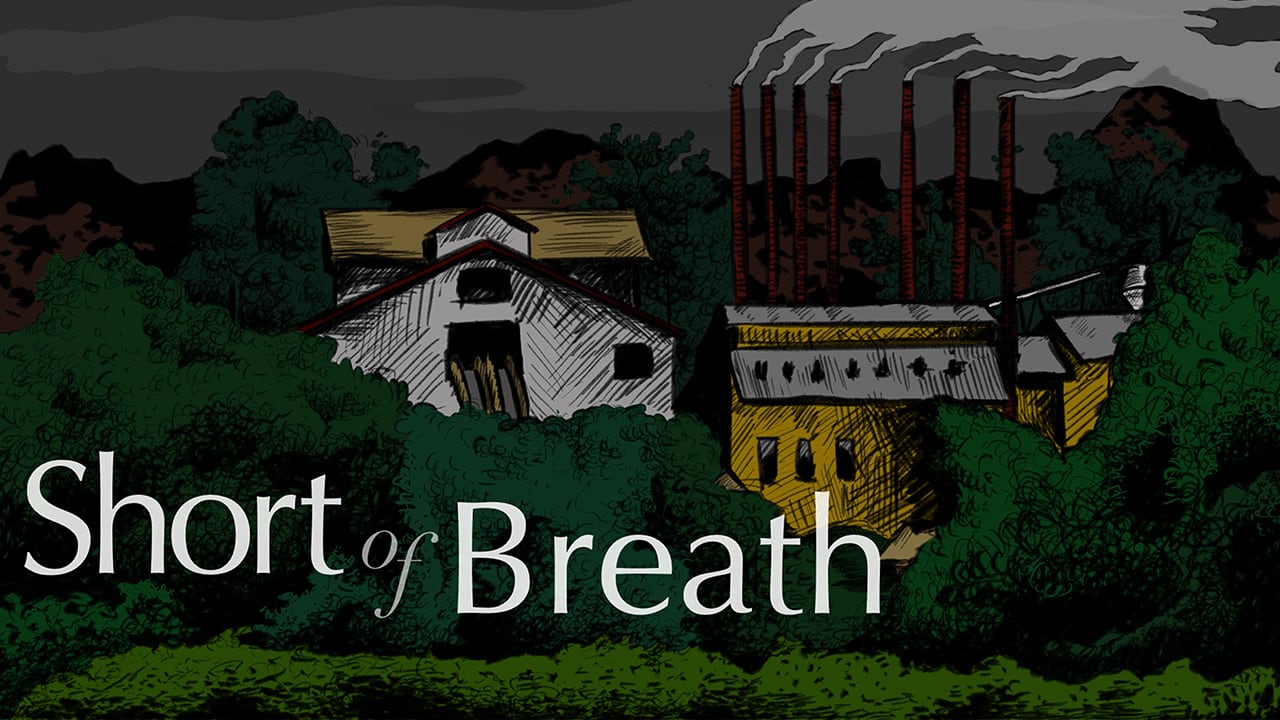The drop into ruin is short but steep for Olyssa, the protagonist of the new narrative podcast Short of Breath. The coastal Oregonian is unceremoniously laid off from a seafood plant, scorned by her preteen daughter, threatened with losing custody, and relapses into addiction. At her nadir, Olyssa picks a shouting match with the moon.
That moment, soundtracked in the audio drama by a forest's worth of hooting and rustling, has less to do with nocturnal loneliness and more with the moon's penchant for mocking a person feeling their smallest: It's steadfast but impossibly remote and constantly visible with no aid.
That's one possible analog for the series' conspicuous connection—set in November 2016—to Donald Trump's election. Directed by local filmmaker and Portland State film professor Dustin Morrow, Short of Breath humanizes a gauntlet of poverty in the vein of directors Debra Granik or Ken Loach. And though Trump's victory is played for foreboding, its lack of relevance to Olyssa's spiral is just as striking. Hopes of economic stability abandoned her long before 2016, and forthcoming crises will surely compound the ongoing ones. After all, Short of Breath was the audio play's prescient title when it was recorded in the winter: before COVID-19, before George Floyd's killing, and before Portland's air singed the lungs last month.
Fittingly, Portland actor Kristina Haddad's portrayal of Olyssa operates with almost physiological distress. In fact, the strained timbre of Haddad's voice might require some deep breathing just for a listener to shake off. It certainly took her some hyperventilation to put on.
"I personally suffer from anxiety, so I was able to totally relate to that aspect," says Haddad, whose CV includes extensive voice work for video games, commercials and films. "I definitely worked myself into a state."
That's not to say Olyssa is a purely panicked character. She's just constantly pressed to buy time and understanding from a constellation of onlookers—exes, judges, bosses, dubious friends—who are only selling patronizing lessons.
Veteran Portland thespian Tom Walton voices one of those skeptical characters, Olyssa's ex-husband Luke. Seeking full custody of their daughter, Luke is a thicket of problems himself, but overcoming substance abuse and poverty seems to have translated into superiority, not empathy.
"I like that he's flawed, too," says Walton, who starred in Morrow's 2019 Irish thriller, Black Pool. "There's that element of 'I have conquered my demon at least for now…why can't you?!' I know [friends] who have been in phases of sobriety where they tend to be on a high horse and judge the shit out of everyone else."
While the narrative podcast form is ready-made for locking into a character's tone, chemistry can be tougher to brew. Walton, who's appeared in over 100 theatrical productions, points out that podcast acting requires waiting for a scene partner to completely stop speaking before volleying back, which can stifle otherwise natural rhythm. Still, the lead actors in Short of Breath credibly manufacture that ironically comfortable knowing exes sometimes share. Haddad says there was no option but to establish an immediate rapport when she met Walton in a Portland State recording booth.
"Because it is just your voice," she explains. "Audiences will be all the more discerning about whether something comes off as truthful."
"Your performance is only as good as who you're with, otherwise you seem sort of hammy and ridiculous and they seem muted and vacant," Walton adds. "When you both go there, that to me is the wonder of acting."
Though its hope is mostly faint, the podcast does double as a plea for patience—and having it for those who matter close to home. On the doorstep of another ominous national election, Short of Breath suggests that life's last-ditch footholds often come from splintered relationships, dingy bureaucratic offices and third or fourth chances. If no one will break your fall there, the moon isn't likely to help.
"I don't care how stable your life looks," Haddad says. "That underlying sense that the rug is going to be pulled and you have to be five steps ahead and it's kind of your fault…it's unrelenting. No wonder she couldn't breathe."
LISTEN: Short of Breath streams at shortofbreath.libsyn.com.

